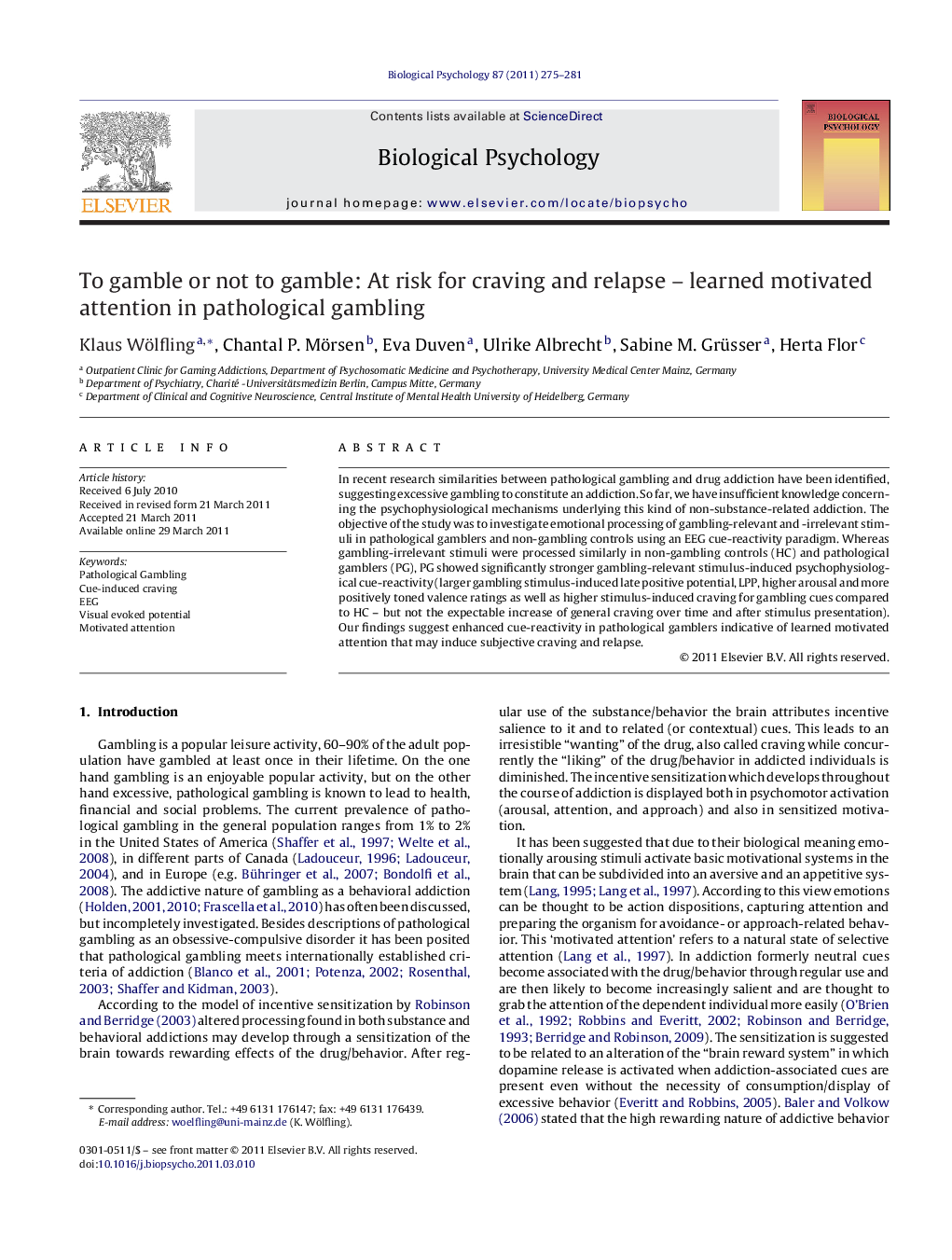| Article ID | Journal | Published Year | Pages | File Type |
|---|---|---|---|---|
| 921167 | Biological Psychology | 2011 | 7 Pages |
In recent research similarities between pathological gambling and drug addiction have been identified, suggesting excessive gambling to constitute an addiction. So far, we have insufficient knowledge concerning the psychophysiological mechanisms underlying this kind of non-substance-related addiction. The objective of the study was to investigate emotional processing of gambling-relevant and -irrelevant stimuli in pathological gamblers and non-gambling controls using an EEG cue-reactivity paradigm. Whereas gambling-irrelevant stimuli were processed similarly in non-gambling controls (HC) and pathological gamblers (PG), PG showed significantly stronger gambling-relevant stimulus-induced psychophysiological cue-reactivity (larger gambling stimulus-induced late positive potential, LPP, higher arousal and more positively toned valence ratings as well as higher stimulus-induced craving for gambling cues compared to HC – but not the expectable increase of general craving over time and after stimulus presentation). Our findings suggest enhanced cue-reactivity in pathological gamblers indicative of learned motivated attention that may induce subjective craving and relapse.
► Pathological gamblers show enhanced ERP after presentation of gambling cues ► Increased late positivity reflects emotional processing of material ► Non-Gambling controls process gambling cues similar to neutral cues ► Pathological gamblers also show increased craving to gamble ► Addiction-specific cue-reactivity is enhanced in pathological gamblers.
